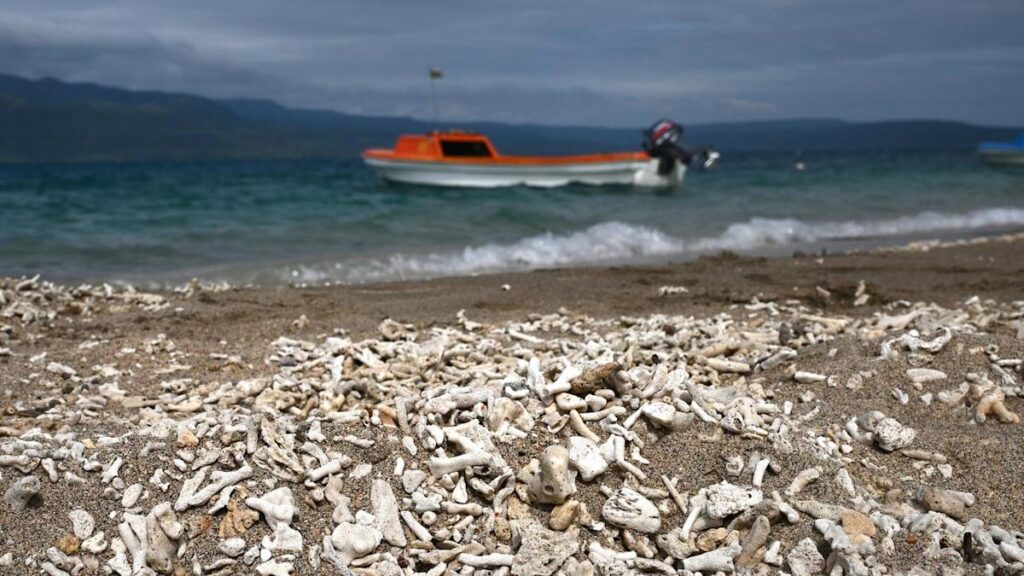
URGENT UPDATE: Pacific leaders are making a desperate appeal for assistance as climate change severely threatens their nations. During the Pacific Infrastructure Conference in Brisbane on October 18, 2023, leaders from some of the world’s most vulnerable countries urged for immediate investment and partnerships to establish resilient infrastructure.
“Give us the resources. Give us the tools so we can manage our future,” stated Cook Islands Deputy Prime Minister Albert Nicholas, capturing the urgency of their situation. Nations on the frontline of the climate crisis need support, as they face rising sea levels and extreme weather events that jeopardize their very existence.
The conference has already produced significant developments, with Australia announcing an extension of direct flights to Palau for another year, a vital lifeline for a tourism-dependent economy. Palau President Surangel Whipps Jr. emphasized that while tourism is crucial, the primary focus must now shift to building sustainable infrastructure that can withstand climate threats.
However, President Whipps Jr. cautioned that the nation cannot afford additional loans following the financial strain of the COVID-19 pandemic.
“We really can’t take more money out to build infrastructure through loans,”
he said, stressing the need for partnerships that can foster aggressive infrastructure development without further indebting the nation.
Australia’s Pacific Island Affairs Minister Pat Conroy reiterated the need for quality infrastructure, declaring it essential in the fight against climate change. Australia has committed nearly $2 billion to fund 56 projects across 11 nations in the region via the Infrastructure Financing Facility for the Pacific. Additionally, the Australian government has set up a $350 million Pacific climate infrastructure financing partnership.
Minister Conroy asserted,
“Pacific leaders have rightly declared climate change is the number one threat to the security of their people.”
This acknowledgment underscores the collective urgency among Pacific nations to secure their futures against climate-related disasters.
President Whipps Jr. further articulated the broader impact of infrastructure investment:
“When we invest in projects that improve climate resilience, create jobs, enable trade, we do not just advance one nation’s development; we lift the prospects of our region as a whole.”
Deputy Prime Minister Nicholas highlighted the critical gap between the Cook Islands’ budget and their ambitious infrastructure goals. He expressed hope that international partners and private capital could bridge this gap, stating,
“Our experience is that the one-size-fits-all approach to procurement perhaps does not suit our scale.”
As these discussions unfold, the plight of Pacific nations grows more dire. They are calling for immediate action to ensure their survival in the face of climate change. The Pacific Infrastructure Conference serves as a vital platform for these nations to voice their needs and seek collaborative solutions.
Moving forward, attention will remain on the outcomes of this conference and the response from international partners. The stakes are high, as the future of these island nations hangs in the balance.






